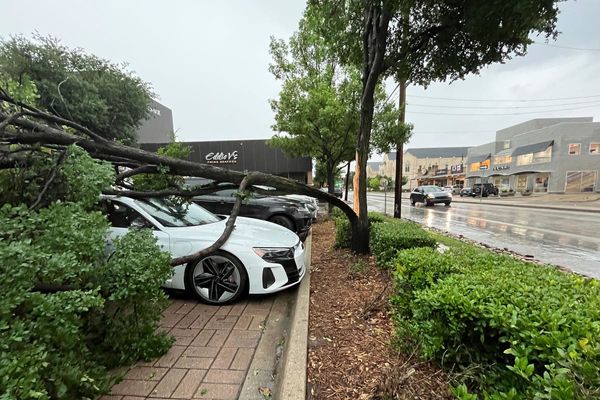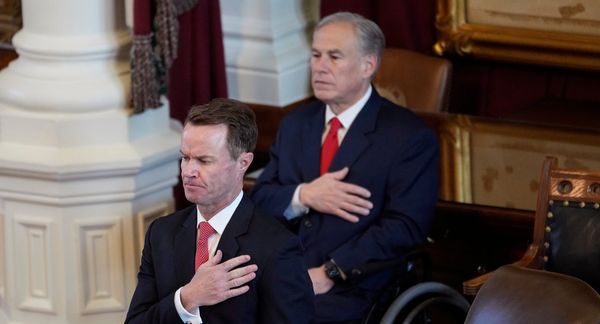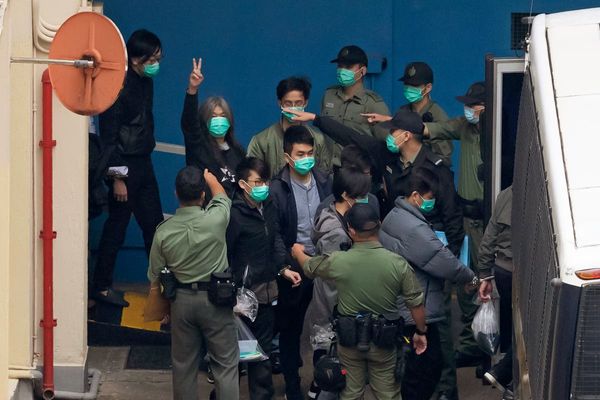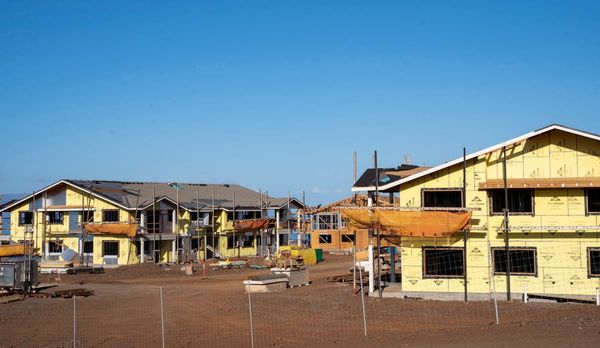
For months, Serhiy Gorbunov has been trying to persuade residents of Chasiv Yar, Russia’s current target in eastern Ukraine, to leave. “There’s intense shelling. The place is being bombarded. It’s a difficult situation,” he said. “People are living underground in basements. We tell them: ‘Please go.’ They answer with excuses. Most say they don’t want to abandon their homes. We try to help but they refuse.”
Gorbunov is the head of the city military administration in Kostiantynivka, the nearest functioning city to the frontline. That is 7 miles (11km) from his office, reached via a dusty and potholed back road that climbs up to the heights of Chasiv Yar. The Russians, who have been besieging the town for well over a year, have now reached its eastern outskirts and are trying to surround it.
If Chasiv Yar falls, the Russians will be able to use its hilltop position to batter the key remaining Ukrainian-controlled cities in the Donetsk region: Kramatorsk, Sloviansk, Druzhkivka and Kostiantynikva.
Most of Chasiv Yar’s multistorey apartment blocks have been damaged and video shows an apocalyptic scene. The Russians attack continuously, using airdropped glide bombs. A Russian drone killed a 55-year-old man. Two other people were hurt. Incredibly, 680 civilians remain in the town. Others hang on in the neighbouring villages of Chervone and Mykolaivka.
Gorbunov said he was sure Ukraine’s armed forces would be able to defend Chasiv Yar and prevent an advance on Kostiantynivka. “Occupation is not going to happen. Remember what befell the Russian warship? Putin can go to the same place under the sea,” he joked. “After two years of full-scale war, you need a bit of humour.”
Despite his confidence, the situation looks bleak for Ukraine. The Russians have been moving forward, seizing the city of Bakhmut, 6 miles east of Chasiv Yar, last year and Avdiivka in February. In April, enemy troops launched a surprise attack and overran the settlement of Ocheretyne, north-west of Avdiivka. They have since taken further territory, creating a growing salient that bulges through the Ukrainian line.
New US military assistance worth $61bn (£49bn) has yet to reach exhausted Ukrainian service personnel. They admit they are outgunned and outnumbered by an enemy with combat jets and seemingly unlimited firepower. The Russians are willing to tolerate huge losses of tanks and men to capture tiny settlements, deploying infantry in what are known as bloody “meat assaults”.
Isolating Kostiantynivka would allow Moscow to disrupt Ukrainian military logistics by shelling the H20 highway, which goes to the south of the province.
Gorbunov said 30,000 people remained in his city, from a prewar total of 70,000, with a large number of soldiers. Army wages have, however, boosted the local economy. There are new pizza restaurants and mobile phone repair shops. Residents say the cash has also fuelled a boom in prostitution and under-the-table alcohol, which is banned in frontline areas. “It’s like the times of Al Capone, plus rockets,” one said.
The military mayor said there was no reason to panic, despite daily enemy bombardment, and trucks delivered drinking water to two districts of the city without a regular supply. Municipal workers could meanwhile be seen planting rose bushes, and repairing roads after complaints from the military that injured soldiers transported by ambulance faced a bumpy journey.
In Chasiv Yar, one shop remains open and any vehicle going there is at risk from Russian drones. A volunteer, Sarhis Arutiunian, said he previously delivered generators and potbelly stoves, as well as cars for the military. Now the town’s remaining civilians, most of them elderly, lead a twilight existence. They hide from bombs, venturing out rarely.
“Chasiv Yar used to be a cosy place. It has a pond with a beach. I would swim there and grill kebabs,” Arutiunian said. “Now it’s a city of ghosts. It’s been completely destroyed, the same as Bakhmut, Avdiivka and Mariupol. I’ve talked to some of the pensioners who stay there. They say: ‘I’m going to die soon anyway, so what’s the point in moving?’.”
Arutiunian works for a community organisation, Svitlyachky Blago, which hands out basic supplies. Last week it supplied first aid kits from a small first-floor room in Kostiantynivka. “The war is close. We’ve got used to it,” Julia Efimova said as she queued to pick up medicines for her 85-year-old grandmother. She continued: “I’m an optimist. I believe in our army.”
Kostiantynivka is frequently hit. An industrial zone that runs alongside the Kryvyi Torets River has been smashed. A rocket destroyed one of the city’s three hospitals, killing several displaced people from Bakhmut who had been living in a hostel next door, next to a garden of lilac bushes and lily of the valley. Another missile flattened a kindergarten, now a sea of bricks.
On 23 April, a munition dropped by a Russian plane exploded near a civilian car, leaving the driver and four passengers with multiple shrapnel wounds. The group had come from Chasiv Yar to get money from a cash machine.
The city’s railway station, meanwhile, has been hit twice. One blast demolished a neo-classical arch and blew off the gold cupolas from the church opposite. On a ruined wall, someone has written: “We are not asking too much. We just need artillery shells and aviation. Rest we do ourselves.” Nearby is a mural of Putin dangling from a blue and yellow scarf, with the slogan “Arm Ukraine”.
Arutiunian said it was extraordinary how many military resources Russia was using to capture Chasiv Yar, a town previously known for its mines and as the birthplace of Joseph Kobzon, a popular Soviet singer linked to the Moscow mafia. Up until 2014, when Russia began its covert takeover of the region, the town’s music school was named after Kobzon.
Arutiunian reflected on the changes in the region over little more than a decade. A football fan, he had watched all the 2012 European Championship matches played in the Donbas Arena of the regional capital, Donetsk. “Donetsk was full of England fans. They got drunk on two-litre bottles of Sarmat beer. We liked them,” he said. He added bitterly: “Now everything is fucked up.” He blamed local pro-Russian politicians, as well as the US and UK which in the 1990s persuaded Kyiv to give up nuclear weapons.
Gorbunov acknowledged it would be decades before Kostiantynivka returned to normal, even if the war finished soon. “This used to be a super place. It’s a beautiful area. Tourists hiked in the forests and in our white chalk mountains,” he said. “Currently it’s impossible to walk anywhere. Everything is mined.” Enemy bombs ignited forest fires, he added, several of them visible last week above the tree line as giant clouds.
With no end to the fighting in sight, Gorbunov was defiant. After a stint as acting military mayor, last week he was formally appointed to the post by the president, Volodymyr Zelenskiy. “Donetsk and Luhansk provinces are Ukraine. Encirclement won’t happen here. They won’t take my city,” he said. “Everything will be Ukraine.”







